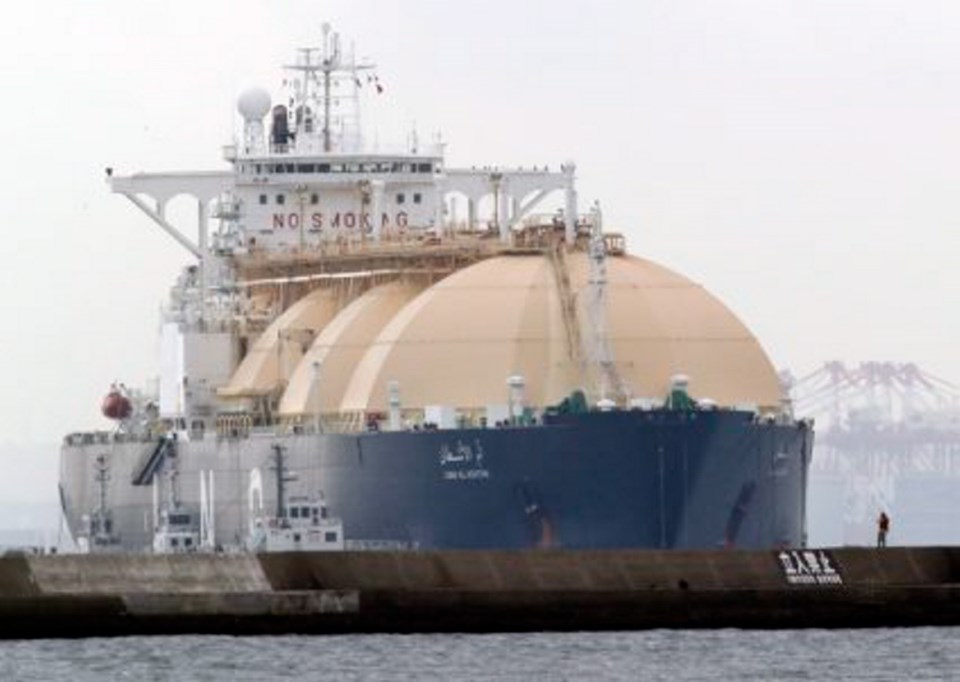 Finance Minister Mike de Jong on Tuesday gave up waiting for the liquefied natural gas revenue windfall to start B.C.’s prosperity fund and kicked it off on his own.
Finance Minister Mike de Jong on Tuesday gave up waiting for the liquefied natural gas revenue windfall to start B.C.’s prosperity fund and kicked it off on his own.
His budget takes $100 million — loose change compared to the amounts originally envisioned — and earmarks it for the new savings account. But it’s a very relaxed savings account. Twenty-five per cent of the fund can be wheeled back into general revenue every year for routine government spending. And there are no guarantees for new deposits every year. LNG is still along way off and in the meantime, growth of the fund depends entirely on maintaining a surplus budget.
It’s a pale imitation of the original outline of the prosperity fund. It was presented simply because the government couldn’t go into next year’s election with nothing to show for a promise originally made in 2013.
It has been re-announced numerous times since then, and each one increased the obligation to actually do something, rather than just talk about it. So with one budget left before the next election, de Jong elected to make the move Tuesday, despite the absence of the revenue stream that created the idea in the first place.
The concept was born three years ago and was directly linked to LNG revenues right from the start. Premier Christy Clark said then LNG was an opportunity for prosperity “unlike anything we have ever seen before.”
“Billions of dollars in new revenue will be dedicated to the B.C. Prosperity Fund,” she said in the throne speech.
The government at the time was counting on $1 trillion in cumulative GDP within British Columbia over the next 30 years. “That means more than $100 billion will flow directly to the Prosperity Fund.”
Holding to that standard, the kickoff amounts to .01 per cent of the first wild estimate. The premise is still sound, but it was so over-promised that anything short of the original projections looks like under-delivery.
De Jong conceded the inaugural investment is “modest,” but said he may scratch together a few more millions once the surplus is firmly nailed down this summer. The three-year plan included in the budget has nothing earmarked for the fund in the next two years. De Jong said future deposits will be determined after the books close and the exact surplus for those years is determined.
The fund is being de-linked from LNG. Deposits are to come from budget surpluses, however they develop.
Tuesday was the fourth surplus budget in a row, and the plan calls for more ahead, in the $260-million to $370-million range. De Jong said allowing 25 per cent of the fund to be used each year to fund core services gives future governments some flexibility. The first call on the fund will be debt retirement — at least 50 per cent will be used to pay down debt. The remaining 25 per cent will stay invested.
It will be legislated into existence as a special fund, which B.C. Liberals likely hope will set up an opportunity for the NDP Opposition to vote against prosperity.
If a three-year wait for the creation of a savings account is a delayed reaction, there are some time delays on the other two big announcements in the budget. The Medical Services Plan shakeup will ease the cost for people with children — but not until next year. And when it kicks in Jan. 1, 2017, it includes a four per cent premium hike and another adjustment that pushes the rate higher for some adults.
Skating through the minefield that is the B.C. housing market, de Jong made a major immediate move by waiving the property transfer tax on new homes up to $750,000. He made up the cost with a new surtax on the $2-million-plus market.
But two other developments will take much longer to play out. B.C. Housing is doing a study of affordability provincewide. And the government will urge municipal governments to make room for more housing and be up-front about the costs they impose, another long-range response to an immediate problem.



